The EU-funded Action on Black Carbon in the Arctic
The EU-funded Action on Black Carbon in the Arctic is an initiative sponsored by the European Union to contribute to the development of collective responses to reduce black carbon emissions in the Arctic and to reinforce international cooperation to protect the Arctic environment. It provides and communicates knowledge about sources and emissions of black carbon and supports relevant international policy processes.
Supporting processes aimed at setting clear commitments and/or targets for reducing black carbon emissions from major BC sources (gas flaring, domestic heating, maritime shipping).
Enhancing international cooperation on black carbon policy in the Arctic region – with a special focus on supporting the work of the Arctic Council and Convention on Long-range Transboundary Air Pollution and other national, regional and international initiatives, and building strong collaboration with EU strategic partners.
AMAP Secretariat is responsible for managing project implementation, and working with the six implementing partners in the Action:
Carbon Limits, Norway
Environment Agency of Austria (EAA)
Finnish Environment Institute (SYKE)
International Institute for Applied Systems Analysis (IIASA)
Norwegian Institute for Air Research (NILU)
Swedish Environmental Research Institute (IVL)
Find out more about the project here.

 Dr. Hilde Hardeman, Head of the European Commission’s Service for Foreign Policy Instruments
Dr. Hilde Hardeman, Head of the European Commission’s Service for Foreign Policy Instruments Dr Hilde Hardeman, Head of the European Commission’s Service for Foreign Policy Instruments (FPI) since 2017, has spent over 25 years working for the European Commission, covering external relations and economic and competitiveness issues. From 2014 to 2017, she served as Deputy Head of Cabinet to the Commission’s Vice-President for Jobs, Growth, Investment and Competitiveness. Previously, she headed the Units for Relations with Russia and with Ukraine, Moldova and Belarus, and was in charge of briefing the Commission President for meetings with EU Heads of State or Government.
Hilde holds a PhD in Slavic Philology and History of the University of Leuven after studies at Leuven, Stanford University, and Paris, and was visiting professor at the College of Europe. She taught and published on the history of Russia and Eastern Europe and on minority rights.
Her current focus is on conflict prevention, crisis management and peace-building, and on leveraging the EU’s influence abroad.
Hilde Hardeman
Head of the European Commission’s Service for Foreign Policy Instruments

 Michael Mann, EU’s Special Envoy for Arctic Matters / Ambassador at Large for the Arctic
Michael Mann, EU’s Special Envoy for Arctic Matters / Ambassador at Large for the Arctic Michael Mann has been the EU’s Special Envoy for Arctic matters/Ambassador at Large for the Arctic since April 1, 2020
Prior to that, he spent two and a half years as the EU’s Ambassador to Iceland.
Between 2011 and 2017, he was head of Strategic Communications at the European External Action Service, doubling up as Chief Spokesperson to High Representative/Vice President Catherine Ashton from 2011 to 2014.
Mr Mann worked as a European Commission Spokesperson between 2002 and 2011, covering a wide range of portfolios.
He began his career in Brussels as a journalist, working for the Financial Times, Reuters and Bloomberg News, among other media.
Michael Mann
EU’s Special Envoy for Arctic Matters / Ambassador at Large for the Arctic

 Kaarle Kupiainen, Ministry of the Environment, Finland
Kaarle Kupiainen, Ministry of the Environment, Finland Dr. Kaarle Kupiainen works currently as a Senior Specialist at the Finnish Ministry of the Environment’s Climate Unit. Among his main areas of responsibility are international co-operation. He represents Finland in the OECD Environmental Policy Committee as well as the Arctic Council groups working on black carbon and methane issues. Prior to his public office, he worked in director and managerial duties in environmental business as well as in academia, where his work mainly focused on emissions of air pollutants and greenhouse gases.
Kaarle Kupiainen
Senior Specialist, Ministry of the Environment, Finland
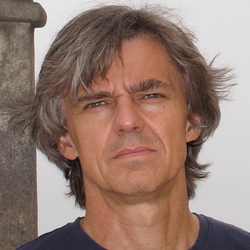
 Zbigniew Klimont, International Institute for Applied Systems Analysis (IIASA), Austria
Zbigniew Klimont, International Institute for Applied Systems Analysis (IIASA), Austria Zbigniew Klimont is a Research Group Leader of the Pollution Management group in the Energy, Climate and Environment program at the International Institute for Applied Systems Analysis (IIASA). IIASA has developed the integrated assessment framework GAINS (Greenhouse Gas and Air Pollution Interactions and Synergies) to explore the synergies and trade-offs between the control of local and regional air pollution and the mitigation of global greenhouse gas emissions. GAINS has been used in regional and global studies, e.g., assessment of short-lived climate forces (SLCF) mitigation potential and contribution to development of air pollution storylines for the Shared Socio-economic Pathways (SSP) used in the IPCC work and beyond. Zig Klimont has a degree in environmental engineering and has been working on the development and assessment of regional and global emissions of various air pollutants and the mid-term scenarios. He leads the development of GAINS modules to estimate emissions and control costs of reducing emissions of several pollutants including particulate matter (including black carbon). He has authored and co-authored over a 100 peer reviewed papers, was a contributing author to the IPCC WGI AR5, is a lead author of the IPPC WGI AR6 and a contributing author to WGIII.
Zbigniew Klimont
Research Group Leader, International Institute for Applied Systems Analysis (IIASA), Austria
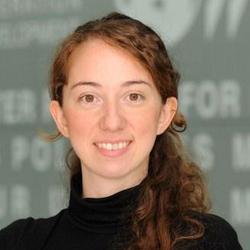
 Dr. Elisa Lanzi, OECD Environment Directorate
Dr. Elisa Lanzi, OECD Environment Directorate Dr. Elisa Lanzi is a Senior Economist at Economy Environment Integration Division of the OECD Environment Department, where she leads the work on Modelling and Outlooks. Elisa works on the economic consequences of environmental policies on a range of environmental issues, including air pollution, maerials use, resource efficiency and the circular economy, and climate change. Since joining the OECD in 2010, Elisa worked on several topics, including the costs of inaction on the environment, the competitiveness impacts of climate policies, and climate change adaptation. Before joining the OECD, she worked at Fondazione Eni Enrico Mattei (FEEM) in the modeling team of the Sustainable Development Division, where she focused on applied economic modelling to assess sustainability and climate policy costs. She owns a PhD in Economics from the University of Venice, a Master in Environmental and Natural Resource Economics from University College London, and a Master of Arts in Economics from the University of St Andrews.
Elisa Lanzi
Senior Economist, OECD Environment Directorate
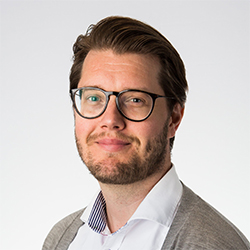
 Dr. Stefan Astrom, IVL, Sweden
Dr. Stefan Astrom, IVL, Sweden Dr. Stefan Åström, Senior Researcher and Project Manager, IVL, Sweden
Stefan Åström
Senior Researcher and Project Manager, IVL, Sweden

 Prof. Mikael Hilden, SYKE, Finland
Prof. Mikael Hilden, SYKE, Finland Prof. Mikael Hildén is Director of the Climate Change Programme at the Finnish Environment Institute (SYKE) and part time Director of the Research Programme towards a Carbon Neutral and Resource Efficient Finland of the Strategic Research Council. Dr Hildén has gained expertise in combining legal, economic, social, technical and scientific research on environmental policy. He chaired the Arctic Council’s Expert Group on Black Carbon and Methane 2017-2019 and has served as expert in developing legislation nationally and in the EU. He holds a position as Expert Councellor for the Supreme Administrative Court of Finland. His key interest is in how policies can contribute to making societies live up to sustainability goals. Dr Hildén has published more than 80 refereed papers, two monographs, more than 180 reports and studies and numerous articles for a general audience and edited three special issues on environmental policy studies. He has recently finished an analysis of options for revising the Finnish Climate Act and an assessment of the national Programme for a circular economy.
Mikael Hilden
Director, SYKE, Finland
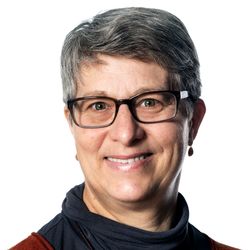
 Dr Annika E. Nilsson, Sweden
Dr Annika E. Nilsson, Sweden Dr Annika E. Nilsson is an interdisciplinary researcher and science writer focusing on the politics of Arctic change, environmental governance, and communication at the science-policy interface. She is currently Researcher at Luleå University of Technology, Sweden, and Senior Researcher at Nordland Research Institute, Norway. She has been engaged in several Arctic Council assessments, both as a as a researcher and as a science writer, most recently working on the forthcoming AMAP report Impacts of short-lived climate forcers on Arctic climate, air quality and human health. Summary for policy makers. Her own research currently focuses on the use of participatory scenario methods and sustainable development in the Arctic. Her most recent book is Arctic Geopolitics, Media and Power (Routledge, 2019).
Annika E. Nilsson (Moderator)
Interdisciplinary Researcher and Science Writer, Science-Policy Interface, Sweden

 Paul Adamson, Chairman, Forum Europe
Paul Adamson, Chairman, Forum Europe Paul Adamson is chairman of Forum Europe and Forum Global and founder of Encompass (previously E!Sharp), an online magazine and discussion space dedicated to covering the European Union and Europe’s place in the world.
Paul is a member of the Centre for European Reform’s advisory board and Rand Europe’s Council of Advisors. He is also a Visiting Professor at the Policy Institute, King’s College London, a Senior Adviser at the Atlantic Council’s Future Europe Initiative and a Senior Fellow at the Centre for Britain and Europe at the University of Surrey. He is a patron of the University Association of Contemporary European Studies (UACES) and a Fellow of the UK Academy of Social Sciences.
In 2012, Paul was made an Officer of the Order of the British Empire (OBE) “for services to promoting understanding of the European Union” and in 2016 he was made a Chevalier in the Ordre national du Mérite by the French government.
Paul Adamson
Chairman, Forum Europe
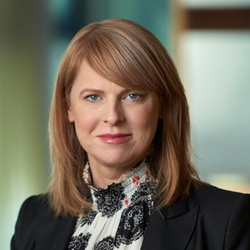
 Kristin Linda Arnadottir, Chair of Arctic Council’s Expert Group on Black Carbon and Methane (EGBCM)
Kristin Linda Arnadottir, Chair of Arctic Council’s Expert Group on Black Carbon and Methane (EGBCM) Kristín Linda Árnadóttir is the Chair of the Arctic Council’s Expert Group on Black Carbon and Methane (EGBCM) during the Icelandic Chairmanship. The main objective of the group is to assess and report on the progress of the implementation of the Artic Council’s Framework for Action on Black Carbon and Methane, and to inform policy makers from the Artic States and participating Arctic Council Observer states. Kristín is the Deputy CEO at Landsvirkjun which is an Icelandic power company. Landsvirkjun produces 100% renewable energy from hydroelectric, geothermal and wind facilities, and is one of Europe’s largest renewable energy producer.
Kristin Linda Árnadóttir
Chair of Arctic Council’s Expert Group on Black Carbon and Methane (EGBCM)
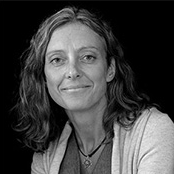
 Anna Engleryd, Chair of the Executive Body UNECE Air Convention
Anna Engleryd, Chair of the Executive Body UNECE Air Convention A bio will appear here shortly.
Anna Engleryd
Chair of the Executive Body UNECE Air Convention
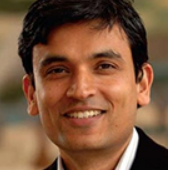
 Dr. Shardul Agrawala is Head of the Environment and Economy Integration Division at the OECD Environment
Dr. Shardul Agrawala is Head of the Environment and Economy Integration Division at the OECD Environment Dr. Shardul Agrawala is Head of the Environment and Economy Integration Division at the OECD Environment Directorate. In this capacity since 2013, Dr. Agrawala leads the Directorate’s work on economic-environmental modelling, circular economy, empirical analysis of environmental policies, and trade and environment.
At the OECD since 2002, Dr. Agrawala has previously served as Senior Advisor to the OECD Secretary General, Co-ordinator of the OECD-wide initiative on New Approaches to Economic Challenges, Acting Head of the Climate Change Biodiversity and Development Division, and Senior Economist Climate Change.
Dr. Agrawala has published extensively on climate change. He has led teams of international experts as Coordinating Lead Author for chapters of the Fourth and Fifth Assessment Reports of the Intergovernmental Panel on Climate Change (IPCC). He has testified before the US Congress, contributed to the Stern Review, and served on advisory panels for the Pilot Program on Climate Resilience of the World Bank and the International Climate Initiative (ICI) of the German Government.
Dr Agrawala received his PhD from Princeton University and has previously held research positions at Princeton University, Harvard University, Columbia University and at the International Institute of Applied Systems Analysis (IIASA).
Shardul Agrawala
Head, Environment and Economy Integration Division, OECD Environment Directorate

 Dr. Shuxiao Wang, Professor, School of Environment, Tsinghua University, Beijing, China
Dr. Shuxiao Wang, Professor, School of Environment, Tsinghua University, Beijing, China Shuxiao Wang, School of Environment, Tsinghua University, Beijing, China
Prof. Shuxiao Wang is full professor at School of Environment, Tsinghua University and the Director of the State Environmental Protection Key Laboratory of Sources and Control of Air Pollution Complex in China. She received PhD on Environmental Sciences and Engineering from Tsinghua University in 2002. Her primary area of research focuses on emission characteristics of air pollutants, air quality modeling, energy-related climate and environmental impacts, health impact assessment of air pollution, and application of artificial intelligence in air pollution control. She has developed the “Air Benefit and Cost and Attainment Assessment System” (ABaCAS) which is designed to provide researchers and policy makers with a user-friendly framework to link a set of decision support tools for conducting integrated assessments of air quality. She published over 300 peer-reviewed journal papers, and was awarded as Global Cited Scientist in 2019 and 2020.
Shuxiao Wang
Professor, School of Environment, Tsinghua University, Beijing, China

Inamov Nuritdin Rahmanzhanovich graduated from the Moscow State University for the International Relations (MGIMO) Ministry for Foreign Affairs in 1984, specialization “International Relations”.
From August 1993 till December 2009 a governmental employee in the Ministry of Foreign Affairs of the Russian Federation. He has an extensive experience in long-term work in the Еmbassies of Russia abroad. He took part in the conduct of international negotiations on environmental issues, sustainable management of natural resources.
From December 2009 till nowadays – Director of the Department for International Cooperation of the Ministry of Natural Resources and the Environment of the Russian Federation.
Currently N.R.Inamov is responsible for a large range of issues related to international activities of the Ministry of Natural Resources and Environment of the Russian Federation in the field of environmental protection, environmental management, sustainable development in mining and water resources. He has experience of heading governmental delegation of the Russian Federation in the international fora.
From April, 15, 2021 – assistant to the Minister of Natural Resources and Environment of the Russian Federation, acting chair of the Interministerial Committee of the Project Support Instrument (PSI) of Arctic Council.
Nuritdin Inamov
Assistant to the Minister of Natural Resources and Environment of the Russian Federation, Acting Chair of the InterMinisterial Committee of the Project Support Instrument (PSI) of Arctic Council.

 François Wakenhut, Head of Unit for the European Commission’s (EC) DG Environment Clean Air Unit
François Wakenhut, Head of Unit for the European Commission’s (EC) DG Environment Clean Air Unit François Wakenhut is Head of the Clean Air Unit in the Directorate-General for the environment of the European Commission since mid-2016. In the same Directorate-General, he was previously Head of the Resource Efficiency & Economic Analysis Unit (2015-2016), Biodiversity Unit (2009-2015) and Head of Unit for International Relations, Governance & Development (2008-2009). He has also served as Assistant to the Director-General of the Directorate-General for the Environment (2007-2008); Political Coordinator for the Marine Environment/Water in Water & Marine Unit of the Directorate-General for the Environment (2004-2007); Administrator in charge of Environmental Integration within the Sustainable Development & Economic Analysis Unit of the Directorate-General for the Environment (2001-2004); and Administrator within the team of the Director-General (2000-2001). François Wakenhut studied at the Institute of Political Studies in Strasbourg, Georgetown University in Washington, DC, and at the College of Europe in Bruges.
François Wakenhut
Head of Unit for the European Commission’s (EC) DG Environment Clean Air Unit
14:00 – 14:05
Conference Welcome

 Paul Adamson, Chairman, Forum Europe
Paul Adamson, Chairman, Forum Europe Paul Adamson is chairman of Forum Europe and Forum Global and founder of Encompass (previously E!Sharp), an online magazine and discussion space dedicated to covering the European Union and Europe’s place in the world.
Paul is a member of the Centre for European Reform’s advisory board and Rand Europe’s Council of Advisors. He is also a Visiting Professor at the Policy Institute, King’s College London, a Senior Adviser at the Atlantic Council’s Future Europe Initiative and a Senior Fellow at the Centre for Britain and Europe at the University of Surrey. He is a patron of the University Association of Contemporary European Studies (UACES) and a Fellow of the UK Academy of Social Sciences.
In 2012, Paul was made an Officer of the Order of the British Empire (OBE) “for services to promoting understanding of the European Union” and in 2016 he was made a Chevalier in the Ordre national du Mérite by the French government.
Paul Adamson, Chairman, Forum Europe
14:05 – 14:10
Opening Remarks

 Dr. Hilde Hardeman, Head of the European Commission’s Service for Foreign Policy Instruments
Dr. Hilde Hardeman, Head of the European Commission’s Service for Foreign Policy Instruments Dr Hilde Hardeman, Head of the European Commission’s Service for Foreign Policy Instruments (FPI) since 2017, has spent over 25 years working for the European Commission, covering external relations and economic and competitiveness issues. From 2014 to 2017, she served as Deputy Head of Cabinet to the Commission’s Vice-President for Jobs, Growth, Investment and Competitiveness. Previously, she headed the Units for Relations with Russia and with Ukraine, Moldova and Belarus, and was in charge of briefing the Commission President for meetings with EU Heads of State or Government.
Hilde holds a PhD in Slavic Philology and History of the University of Leuven after studies at Leuven, Stanford University, and Paris, and was visiting professor at the College of Europe. She taught and published on the history of Russia and Eastern Europe and on minority rights.
Her current focus is on conflict prevention, crisis management and peace-building, and on leveraging the EU’s influence abroad.
Hilde Hardeman, Head of the European Commission’s Service for Foreign Policy Instruments
14:10 – 14:15
Introduction

 Michael Mann, EU’s Special Envoy for Arctic Matters / Ambassador at Large for the Arctic
Michael Mann, EU’s Special Envoy for Arctic Matters / Ambassador at Large for the Arctic Michael Mann has been the EU’s Special Envoy for Arctic matters/Ambassador at Large for the Arctic since April 1, 2020
Prior to that, he spent two and a half years as the EU’s Ambassador to Iceland.
Between 2011 and 2017, he was head of Strategic Communications at the European External Action Service, doubling up as Chief Spokesperson to High Representative/Vice President Catherine Ashton from 2011 to 2014.
Mr Mann worked as a European Commission Spokesperson between 2002 and 2011, covering a wide range of portfolios.
He began his career in Brussels as a journalist, working for the Financial Times, Reuters and Bloomberg News, among other media.
Michael Mann, EU’s Special Envoy for Arctic Matters / Ambassador at Large for the Arctic
14:15 – 14:25
Setting the Context: Why is Black Carbon a Major Concern in the Arctic and Globally

 Dr. Kaarle Kupiainen, Senior Specialist, Ministry of the Environment, Finland
Dr. Kaarle Kupiainen, Senior Specialist, Ministry of the Environment, Finland Dr. Kaarle Kupiainen works currently as a Senior Specialist at the Finnish Ministry of the Environment’s Climate Unit. Among his main areas of responsibility are international co-operation. He represents Finland in the OECD Environmental Policy Committee as well as the Arctic Council groups working on black carbon and methane issues. Prior to his public office, he worked in director and managerial duties in environmental business as well as in academia, where his work mainly focused on emissions of air pollutants and greenhouse gases.
Kaarle Kupiainen, Senior Specialist, Ministry of the Environment, Finland
14:25 – 14:35
Baseline and Mitigation Scenarios of Black Carbon Emissions

 Zbigniew Klimont, Research Group Leader, International Institute for Applied Systems Analysis (IIASA), Austria
Zbigniew Klimont, Research Group Leader, International Institute for Applied Systems Analysis (IIASA), Austria Zbigniew Klimont is a Research Group Leader of the Pollution Management group in the Energy, Climate and Environment program at the International Institute for Applied Systems Analysis (IIASA). IIASA has developed the integrated assessment framework GAINS (Greenhouse Gas and Air Pollution Interactions and Synergies) to explore the synergies and trade-offs between the control of local and regional air pollution and the mitigation of global greenhouse gas emissions. GAINS has been used in regional and global studies, e.g., assessment of short-lived climate forces (SLCF) mitigation potential and contribution to development of air pollution storylines for the Shared Socio-economic Pathways (SSP) used in the IPCC work and beyond. Zig Klimont has a degree in environmental engineering and has been working on the development and assessment of regional and global emissions of various air pollutants and the mid-term scenarios. He leads the development of GAINS modules to estimate emissions and control costs of reducing emissions of several pollutants including particulate matter (including black carbon). He has authored and co-authored over a 100 peer reviewed papers, was a contributing author to the IPCC WGI AR5, is a lead author of the IPPC WGI AR6 and a contributing author to WGIII.
Zbigniew Klimont, Research Group Leader, International Institute for Applied Systems Analysis (IIASA), Austria
14:35 – 14:45
The Economic Benefits of Air Quality Improvements in Arctic Council Countries

 Prof. Dr. Boris Otto, Gaia-X Board of Directors
Prof. Dr. Boris Otto, Gaia-X Board of Directors Prof. Dr. Boris Otto holds the Chair for Industrial Information Management at TU Dortmund University and is the Executive Director of the Fraunhofer Institute for Software and Systems Engineering ISST in Dortmund. He received his doctorate degree from the University of Stuttgart and his post-doctoral qualification (“habilitation”) from the University of St. Gallen. His research focuses on industrial information management, corporate data management and business networks and ecosystems. He is Vice-President of the Board of Directors of the International Data Spaces (IDS) Association.
Prof. Dr. Boris Otto
Member of the Interim Management Team and acting Interim CTO of the GAIA-X AISBL (under incorporation)

 Dr. Elisa Lanzi, Senior Economist, OECD Environment Directorate
Dr. Elisa Lanzi, Senior Economist, OECD Environment Directorate Dr. Elisa Lanzi is a Senior Economist at Economy Environment Integration Division of the OECD Environment Department, where she leads the work on Modelling and Outlooks. Elisa works on the economic consequences of environmental policies on a range of environmental issues, including air pollution, maerials use, resource efficiency and the circular economy, and climate change. Since joining the OECD in 2010, Elisa worked on several topics, including the costs of inaction on the environment, the competitiveness impacts of climate policies, and climate change adaptation. Before joining the OECD, she worked at Fondazione Eni Enrico Mattei (FEEM) in the modeling team of the Sustainable Development Division, where she focused on applied economic modelling to assess sustainability and climate policy costs. She owns a PhD in Economics from the University of Venice, a Master in Environmental and Natural Resource Economics from University College London, and a Master of Arts in Economics from the University of St Andrews.
Elisa Lanzi, Senior Economist, OECD Environment Directorate
14:45 – 15:00
From National to International Policy Options to Reduce Emissions

 Dr. Stefan Astrom, Senior Researcher and Project Manager, IVL, Sweden
Dr. Stefan Astrom, Senior Researcher and Project Manager, IVL, Sweden A bio will appear here shortly.
Stefan Åström, Senior Researcher and Project Manager, IVL, Sweden

 Dr. Mikael Hilden, SYKE, Finland
Dr. Mikael Hilden, SYKE, Finland Prof. Mikael Hildén is Director of the Climate Change Programme at the Finnish Environment Institute (SYKE) and part time Director of the Research Programme towards a Carbon Neutral and Resource Efficient Finland of the Strategic Research Council. Dr Hildén has gained expertise in combining legal, economic, social, technical and scientific research on environmental policy. He chaired the Arctic Council’s Expert Group on Black Carbon and Methane 2017-2019 and has served as expert in developing legislation nationally and in the EU. He holds a position as Expert Councellor for the Supreme Administrative Court of Finland. His key interest is in how policies can contribute to making societies live up to sustainability goals. Dr Hildén has published more than 80 refereed papers, two monographs, more than 180 reports and studies and numerous articles for a general audience and edited three special issues on environmental policy studies. He has recently finished an analysis of options for revising the Finnish Climate Act and an assessment of the national Programme for a circular economy.
Mikael Hilden, Director, SYKE, Finland
15:00 – 15:30
Questions/Answers and Discussion Session with Speakers

 Dr Annika E. Nilsson, Interdisciplinary Researcher and Science Writer, Science-Policy Interface, Sweden
Dr Annika E. Nilsson, Interdisciplinary Researcher and Science Writer, Science-Policy Interface, Sweden Dr Annika E. Nilsson is an interdisciplinary researcher and science writer focusing on the politics of Arctic change, environmental governance, and communication at the science-policy interface. She is currently Researcher at Luleå University of Technology, Sweden, and Senior Researcher at Nordland Research Institute, Norway. She has been engaged in several Arctic Council assessments, both as a as a researcher and as a science writer, most recently working on the forthcoming AMAP report Impacts of short-lived climate forcers on Arctic climate, air quality and human health. Summary for policy makers. Her own research currently focuses on the use of participatory scenario methods and sustainable development in the Arctic. Her most recent book is Arctic Geopolitics, Media and Power (Routledge, 2019).
Moderator – Annika E. Nilsson, Interdisciplinary Researcher and Science Writer, Science-Policy Interface, Sweden
15:30 – 16:25
Panel discussion on key issues at regional and global levels. Include questions from participants.

 Kristin Linda Árnadóttir, Chair of Arctic Council’s Expert Group on Black Carbon and Methane (EGBCM)
Kristin Linda Árnadóttir, Chair of Arctic Council’s Expert Group on Black Carbon and Methane (EGBCM) Kristín Linda Árnadóttir is the Chair of the Arctic Council’s Expert Group on Black Carbon and Methane (EGBCM) during the Icelandic Chairmanship. The main objective of the group is to assess and report on the progress of the implementation of the Artic Council’s Framework for Action on Black Carbon and Methane, and to inform policy makers from the Artic States and participating Arctic Council Observer states. Kristín is the Deputy CEO at Landsvirkjun which is an Icelandic power company. Landsvirkjun produces 100% renewable energy from hydroelectric, geothermal and wind facilities, and is one of Europe’s largest renewable energy producer.
Kristin Linda Árnadóttir, Chair of Arctic Council’s Expert Group on Black Carbon and Methane (EGBCM)

 Anna Engleryd, Chair of the Executive Body UNECE Air Convention
Anna Engleryd, Chair of the Executive Body UNECE Air Convention A bio will appear here shortly.
Anna Engleryd, Chair of the Executive Body UNECE Air Convention

 Dr. Shardul Agrawala is Head of the Environment and Economy Integration Division at the OECD Environment Directorate
Dr. Shardul Agrawala is Head of the Environment and Economy Integration Division at the OECD Environment Directorate Dr. Shardul Agrawala is Head of the Environment and Economy Integration Division at the OECD Environment Directorate. In this capacity since 2013, Dr. Agrawala leads the Directorate’s work on economic-environmental modelling, circular economy, empirical analysis of environmental policies, and trade and environment.
At the OECD since 2002, Dr. Agrawala has previously served as Senior Advisor to the OECD Secretary General, Co-ordinator of the OECD-wide initiative on New Approaches to Economic Challenges, Acting Head of the Climate Change Biodiversity and Development Division, and Senior Economist Climate Change.
Dr. Agrawala has published extensively on climate change. He has led teams of international experts as Coordinating Lead Author for chapters of the Fourth and Fifth Assessment Reports of the Intergovernmental Panel on Climate Change (IPCC). He has testified before the US Congress, contributed to the Stern Review, and served on advisory panels for the Pilot Program on Climate Resilience of the World Bank and the International Climate Initiative (ICI) of the German Government.
Dr Agrawala received his PhD from Princeton University and has previously held research positions at Princeton University, Harvard University, Columbia University and at the International Institute of Applied Systems Analysis (IIASA).
Shardul Agrawala, Head, Environment and Economy Integration Division, OECD Environment Directorate

 Dr. Shuxiao Wang, Professor, School of Environment, Tsinghua University, Beijing, China
Dr. Shuxiao Wang, Professor, School of Environment, Tsinghua University, Beijing, China Shuxiao Wang, School of Environment, Tsinghua University, Beijing, China
Prof. Shuxiao Wang is full professor at School of Environment, Tsinghua University and the Director of the State Environmental Protection Key Laboratory of Sources and Control of Air Pollution Complex in China. She received PhD on Environmental Sciences and Engineering from Tsinghua University in 2002. Her primary area of research focuses on emission characteristics of air pollutants, air quality modeling, energy-related climate and environmental impacts, health impact assessment of air pollution, and application of artificial intelligence in air pollution control. She has developed the “Air Benefit and Cost and Attainment Assessment System” (ABaCAS) which is designed to provide researchers and policy makers with a user-friendly framework to link a set of decision support tools for conducting integrated assessments of air quality. She published over 300 peer-reviewed journal papers, and was awarded as Global Cited Scientist in 2019 and 2020.
Shuxiao Wang, Professor, School of Environment, Tsinghua University, Beijing, China

Inamov Nuritdin Rahmanzhanovich graduated from the Moscow State University for the International Relations (MGIMO) Ministry for Foreign Affairs in 1984, specialization “International Relations”.
From August 1993 till December 2009 a governmental employee in the Ministry of Foreign Affairs of the Russian Federation. He has an extensive experience in long-term work in the Еmbassies of Russia abroad. He took part in the conduct of international negotiations on environmental issues, sustainable management of natural resources.
From December 2009 till nowadays – Director of the Department for International Cooperation of the Ministry of Natural Resources and the Environment of the Russian Federation.
Currently N.R.Inamov is responsible for a large range of issues related to international activities of the Ministry of Natural Resources and Environment of the Russian Federation in the field of environmental protection, environmental management, sustainable development in mining and water resources. He has experience of heading governmental delegation of the Russian Federation in the international fora.
From April, 15, 2021 – assistant to the Minister of Natural Resources and Environment of the Russian Federation, acting chair of the Interministerial Committee of the Project Support Instrument (PSI) of Arctic Council.
Nuritdin Inamov, Assistant to the Minister of Natural Resources and Environment of the Russian Federation, Acting Chair of the InterMinisterial Committee of the Project Support Instrument (PSI) of Arctic Council.
16:25 – 16:30
Closing Remarks

 François Wakenhut, Head of Unit for the European Commission’s (EC) DG Environment Clean Air Unit
François Wakenhut, Head of Unit for the European Commission’s (EC) DG Environment Clean Air Unit François Wakenhut is Head of the Clean Air Unit in the Directorate-General for the environment of the European Commission since mid-2016. In the same Directorate-General, he was previously Head of the Resource Efficiency & Economic Analysis Unit (2015-2016), Biodiversity Unit (2009-2015) and Head of Unit for International Relations, Governance & Development (2008-2009). He has also served as Assistant to the Director-General of the Directorate-General for the Environment (2007-2008); Political Coordinator for the Marine Environment/Water in Water & Marine Unit of the Directorate-General for the Environment (2004-2007); Administrator in charge of Environmental Integration within the Sustainable Development & Economic Analysis Unit of the Directorate-General for the Environment (2001-2004); and Administrator within the team of the Director-General (2000-2001). François Wakenhut studied at the Institute of Political Studies in Strasbourg, Georgetown University in Washington, DC, and at the College of Europe in Bruges.
François Wakenhut, Head of Unit for the European Commission’s (EC) DG Environment Clean Air Unit
View the highlights video here.


 AMAP
AMAP The Arctic Monitoring and Assessment Programme is one of six Working Groups of the Arctic Council.
AMAP is mandated:
AMAP’s work is directed by the Ministers of the Arctic Council and their Senior Arctic Officials, who have requested AMAP to also support international processes that work to reduce the global threats from contaminants and climate change. These include the UN Framework Convention on Climate Change, UNEP’s Stockholm Convention on Persistent Organic Pollutants and Minimata Convention on mercury, and the United Nation’s Economic Commission for Europe (UN ECE) Convention on Long-range Transboundary Air Pollution.
Since its establishment in 1991, AMAP has produced a series of high quality reports and related communication products that detail the status of the Arctic with respect to climate and pollution issues and that include policy-relevant science-based advice to the Arctic Council and governments.

 Carbon Limits
Carbon Limits Carbon Limits was formally established in June 2005, but its origins date back to the early 1990’s. The company grew out of the energy and carbon services of ECON (now Poyry Norge), a leading Scandinavian consultancy. With projects in more than 20 countries, Carbon Limits has garnered an extensive experience in the identification and development of emission reduction opportunities in traditional energy sectors, but also in capacity building and policy advice. Our geographical focus includes Africa, Russia, Central Asia, Latin America and Middle East where the company has access to a network of local partners and government contacts. Today we are a diverse team of engineers, economists, and policy experts with a focus on mitigation in the oil and gas sector, carbon and climate finance, emission reduction policies and MRV.

 Environment Agency of Austria (EAA)
Environment Agency of Austria (EAA) 
 Finnish Environment Institute (SYKE)
Finnish Environment Institute (SYKE) SYKE is a multidisciplinary research and expert institute. Our most important task is to solve society’s most burning questions that have an impact on the environment.
We are building a sustainable society. We provide necessary information, multidisciplinary expertise and expert services for public and private decision-making.
We have some 650 competent experts and researchers. We work in close and stimulating co-operation with Finnish and international partners.
SYKE has four office and research facilities in Helsinki, Oulu, Jyväskylä and Joensu

 International Institute for Applied Systems Analysis (IIASA)
International Institute for Applied Systems Analysis (IIASA) Through its research programs and initiatives, the institute conducts policy-oriented research into issues that are too large or complex to be solved by a single country or academic discipline. This includes pressing concerns that affect the future of all of humanity, such as climate change, energy security, population aging, and sustainable development.
The results of IIASA research and the expertise of its researchers are made available to policymakers in countries around the world to help them produce effective, science-based policies that will enable them to face these challenges.
IIASA is governed by a Council that is made up of one representative of each of IIASA’s member countries. Along with various external advisory bodies, the Council also regularly evaluates the institute’s work.

 Norwegian Institute for Air Research (NILU)
Norwegian Institute for Air Research (NILU) NILU will be a research institute with high professional quality and relevant competence
in its core research areas: atmospheric composition, climate change, air quality,
and environmental contaminants.
We will deliver services closely linked to our research.
We will ensure the knowledge within our core research areas benefits society by making it
visible and accessible. Our knowledge will contribute to make society aware of the causes and
consequences of climate change and pollution.
We will contribute to the development of the knowledge-based society through innovation.

 Swedish Environmental Research Institute (IVL)
Swedish Environmental Research Institute (IVL) We combine applied research and development with close collaboration between industry and the public sphere. Our consultancy is evidence-based, and our research is characterized by interdisciplinary science and system thinking.
IVL was jointly founded in 1966 by the Swedish state and national business interests to carry out research on industrial air and water issues. Today we are an environmental agency concentrating on much more. Common to all of our assignments is the interaction between ecological, economic and social
perspectives.
We employ more than 300 engineers, behavioural scientists, chemists, marine biologists, biologists, political scientists, journalists, business developers and economists – to name only a few. We also possess exceptional specialist skills – a fourth of our employees have doctorates.
Our core values are credibility, foresight and a holistic perspective. Our vision is a sustainable society. We are pushing the transition to a sustainable society by taking science to society, turning environmental problems into opportunities and bending linear processes into a circular economy.